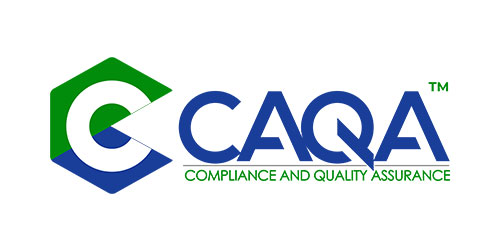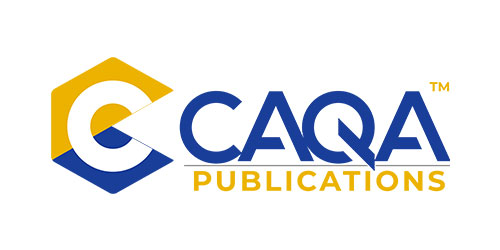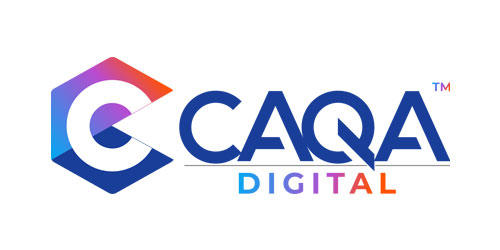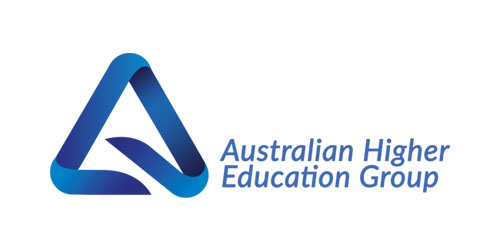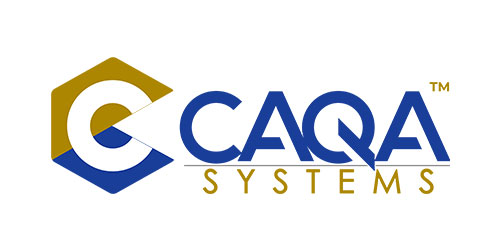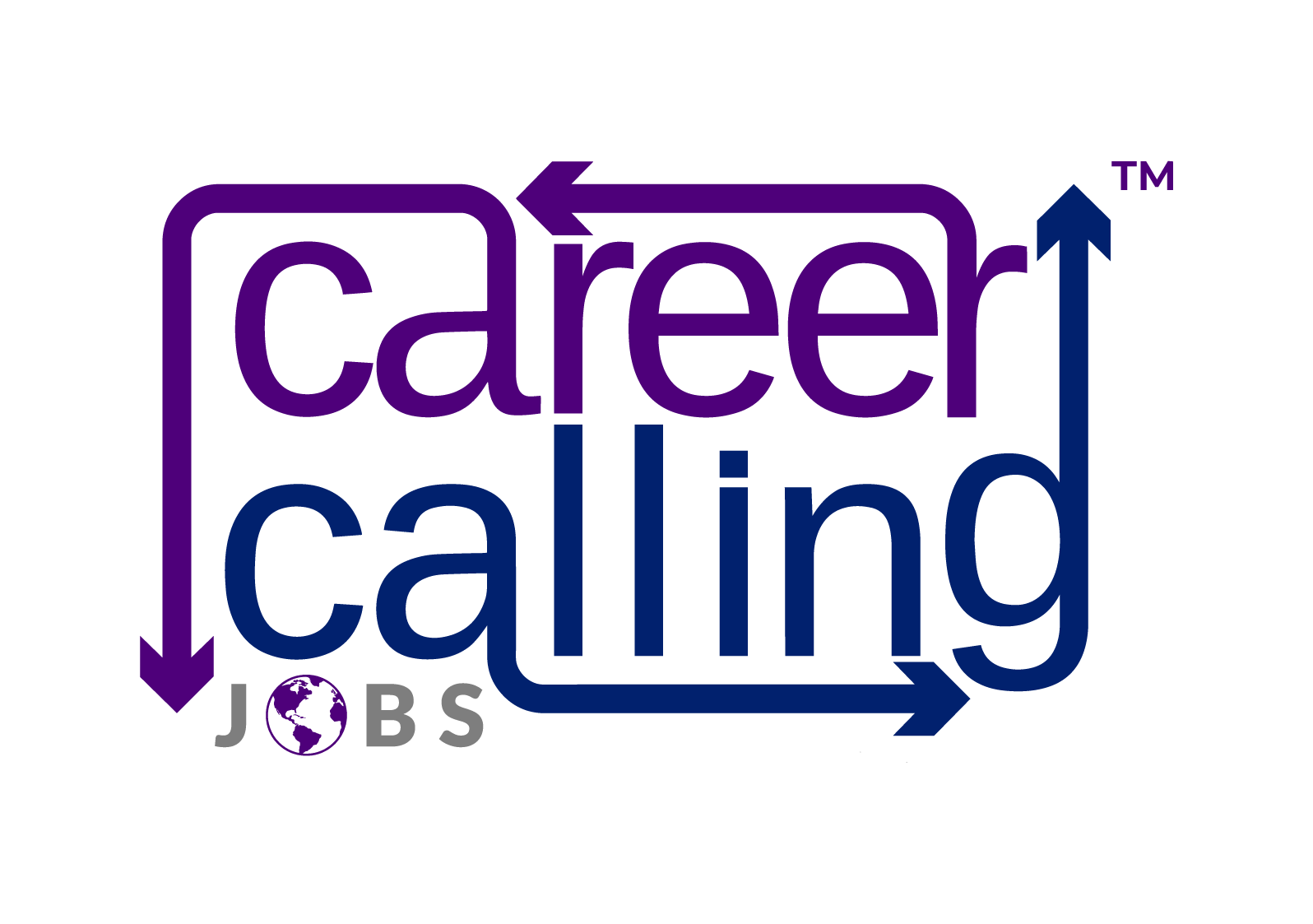-
Home
- |
- Blogs
- |
- VET Industry NEWS
- |
- The VET Sector News (July 2022)
- Home
- |
- Blogs
- |
- VET Industry NEWS
- |
- The VET Sector News (July 2022)

The VET Sector News (July 2022)
Leadership and personal finance are the focus of TROY’s two free online classes this summer
Whether you’re interested in building valuable leadership skills to propel your career or are interested in learning principles to protect and grow your wealth, Troy University is ready to help those who want to make a commitment to their future by offering two free courses this summer.
TROY’s online courses have been ranked among the country’s best by U.S. News and World Report. The University is known for emphasizing the importance of developing strong leaders and its leadership program is one of the best in the nation. Beginning July 11, TROY will offer a free online, four-week course entitled an Introduction to Leadership. This course presents a rare opportunity for participants to learn how to lead from a global perspective while incorporating self-evaluation in order to gain a better understanding of how to lead effectively.
“We believe that universities are responsible for building the leaders of tomorrow and that is a commitment we do not take lightly,” said Dr. Jack Hawkins, Jr., Chancellor. “Our mission is to develop leaders who are well equipped to meet the challenges of today’s world. These two free courses are an excellent introduction to all we offer at Troy University while giving participants the chance to learn valuable life skills.”
New for 2022, TROY is offering a free personal finance course entitled Your Life, Your Success — Money Management and Financial Wellness which is designed to give students an overview of financial principles that will help them succeed. Students will learn about budgeting, filing taxes, different types of loans and insurance products, and an overview of investment options. This course will be offered in two tracks beginning July 11; one for a general audience and one for young adults.
The courses are open to anyone and do not require enrollment in TROY to participate. Participants who enroll at Troy University can earn three credit hours for each course as a general elective or minor course. The courses run for four weeks and end on Aug. 8. To earn academic credit, students must pass a challenge exam at the end of the courses. Current TROY students who participate must have less than 15 hours of university credit to receive academic credit for passing the challenge exam. Register at: troy.edu/freeclass.
For more information, please click here.
Reminder about superseded HLT First Aid units
An important reminder regarding first aid training:
HLTAID001-HLTAID008 should no longer be delivered by any provider after July 1, 2022.
For more information, please click here.
Skilled migration and visa backlog in focus at Anthony Albanese’s first National Cabinet meeting
The visa backlog must be addressed to allow migration to be harnessed to combat skill shortages plaguing the country, according to Prime Minister Anthony Albanese.
Mr Albanese hosted his first National Cabinet meeting on Friday, where state and territory leaders directly raised the issue of fast-tracking targeted migration with him.
The migration program is still suffering from the impacts of the COVID-19 pandemic with visa backlogs placing immense pressure on the Department of Home Affairs.
For more information, please click here.
Students shun unis in favour of trades, vocational courses
Australian students have turned away from university degrees in favour of trades and vocational courses, the latest census data has revealed.
In 2021, 177,032 more students were completing vocational studies, which included courses offered by TAFE and private training providers, compared to 2016. In that same time period, there were just 24,824 more people studying at university.
Vocational students made up 7.8 per cent of all Australian students in 2021, up from 5.9 per cent in 2016 and 7.3 per cent in 2011.
Meanwhile, universities enrolled 15.4 per cent of students in 2021, compared to 16 per cent in 2016 and 14 per cent in 2011.
The census data also showed that vocational students are getting older, with 63 per cent aged 25 and older in 2021 compared to 57 per cent in 2016.
Women were far more likely to be enrolled at university than men, making up 58 per cent of students, compared to 56 per cent in 2016.
For more information, please click here.
Productivity, Migration and Skills
At a national level, the question is: what is the link between education and growth?
That is a question the Productivity Commission is grappling with in the context of our 5-year Productivity Review. It’s not simple and to show why I want to start two claims: one bland and one more controversial.
The bland one is that education is fundamental to equipping people for the high skill jobs of a modern economy. (Among its many other benefits.) The controversial one centres on our prospects for future growth and it is this: it is not clear that high levels of education are making us any more innovative. Because the glaring paradox of our age is that we have never been more highly educated and we have the lowest productivity growth in 50 years.
How can this be, and what should we do about it? I think the challenge that it poses is that education and research, like most good things, have a tendency towards diminishing returns. The policy question is how we might break out of that tendency.
For more information, please click here.
2 years ago
Related News

17 May, 2018
VET Industry News 10-May-2018
Updates from the Australian Skills Quality Authority ASQA is increasing scrutiny on new applications for registration from 1 July 2018. Vocational education and training (VET) and the education of overseas students make a significant contribution to Australia’s economy. More than four million people undertake VET qualifications in Australia each year and the quality of the […]
7 years ago

8 June, 2018
VET Industry News 8-Jun-2018
ASQA is increasing scrutiny on new applications for registration from 1 July 2018. Vocational education and training (VET) and the education of overseas students make a significant contribution to Australia’s economy. More than four million people undertake VET qualifications in Australia each year and the quality of the training sector has a direct impact on […]
6 years ago

9 October, 2018
VET Industry News 10-Oct-2018
ASQA Welcomes Convictions for Dodgy Training Providers The national VET regulator has welcomed the conviction of four people who falsified documents. For more Information: visit this link. Updates to the BSB Training Package Updates to the BSB Training Package were released last week and Release 3.0 is now published on the national register of VET, training.gov.au (TGA). […]
6 years ago

12 March, 2019
The VET Sector News – December 2019
Poorer and regional Australian students lag behind richer peers, report finds Poorer Australian students are 18 months behind their better-off peers at school, a report by Deloitte has found. And regional students were on average eight months behind at school. If academic results could be improved by 50% for poorer and Aboriginal students, the economy […]
6 years ago

6 May, 2019
VET Industry News 06-May-2019
A plan for stronger Australia The Business Council of Australia has released a plan for stronger Australia. Click here for more information The Independent Sector Offers Better Outcomes At A Lower Cost – ACPET The independent Vocational Education and Training (VET) sector is highly efficient. Domestically, it costs the government $2,400 per student trained by independent […]
6 years ago

28 May, 2019
VET Industry News 28-May-2019
28th National Vocational Education and Training Research Conference ‘No Frills’ 28th National Vocational Education and Training Research Conference ‘No Frills’: 10-12 July 2019 NCVER and co-hosts TAFE SA are delighted to invite you to Adelaide this July for #NoFrills2019. Presenters and delegates from across Australia and around the world will come together to explore the […]
5 years ago

4 July, 2019
The VET Sector News
Annual Registration Charge – Due July 30th 2019 ASQA will issue RTOs with an invoice for their annual registration charge. RTOs must pay the charge within 30 days of ASQA issuing the invoice. The annual charge recovers some of the costs ASQA incurs when conducting activities necessary for effective regulation of the vocational education and […]
5 years ago
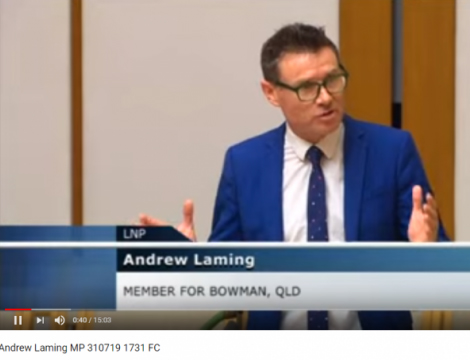
20 August, 2019
The man who stood up for the vocational education and training sector – Mr Andrew Laming MP
We can see the after effects of MP Andrew Laming’s speech in parliament. Many people have started talking about the vocational education and training sector, and the processes and procedures of the current regulator. His video that we have shared last week has received over 9,300 views, 1600 likes and 5 dislikes.The video is available […]
5 years ago

10 September, 2019
The VET Sector News – September 2019
ASQA’s Sample AQF documentation gets updated to meet the requirements of third-party arrangements The ASQA Fact Sheet Sample AQF documentation has been updated for a clarification in light of recent Third Party arrangements guidance. https://www.asqa.gov.au/news-publications/publications/fact-sheets/sample-aqf-documentation The fact sheet now states “Only the name of the issuing organisation (your RTO) can be included on testamurs/statements of […]
5 years ago

18 September, 2019
The VET Sector News
Integration is the key to the future – TROY WILLIAMS Australia needs an integrated tertiary education system in which higher education plus vocational education and training operate as one but they retain their separate identities. The rationale is strong. Those entering the workforce today are likely to have three or four careers before they retire, […]
5 years ago
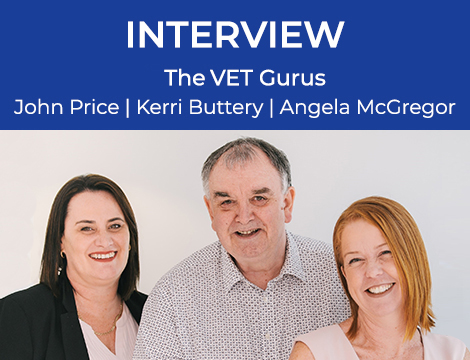
18 September, 2019
Interview with The VET Gurus – John Price, Angela McGregor, Kerri Butter
Response from John Price regarding VET Sector Newsletter. John Price John started his career in education and training over 40 years ago. He was the Head of the School of Printing and Graphic Arts, became a TAFE Queensland Professional Development Coordinator and mentored many new TAFE teachers through their Diploma in Technical and Further Education. He […]
5 years ago

1 October, 2019
The VET Sector News
India is reforming education for the first time since 1986 – here’s why Australia should care India released a Draft National Education Policy (DNEP) in June 2019. It’s the first comprehensive policy proposal on education in the country since 1986 and a major, game-changing statement. Australia has a moral duty to engage with the global […]
5 years ago
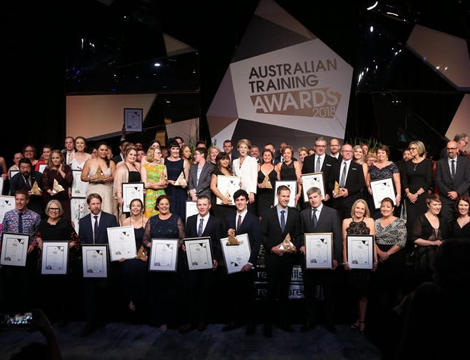
4 December, 2019
2019 Australian Training Awards winners announced
The Australian Training Awards are the peak national awards for the VET sector recognising individuals, businesses and registered training organisations for their contribution to skilling Australia. On 21 November the awards were presented and the winners are: Lifetime Achievement Award — Wayne Collyer Wayne Collyer was Managing Director at Polytechnic West (now South Metropolitan TAFE) […]
5 years ago

17 December, 2019
VET International Engagement Strategy 2025 launched
The Morrison Government has reaffirmed its commitment to ensure Australian VET sector continues to play a significant role in contributing to the development of a highly skilled workforce by lodging Vocational Education and Training International Engagement Strategy 2025. Australia’s first National Strategy for International Education 2025 enables Australia’s international education sector to be more innovative, […]
5 years ago

17 December, 2019
Satisfaction with vocational education and training remains high
New data from over 170 000 vocational education and training (VET) students shows that satisfaction with VET remains high, according to a new report by the National Centre for Vocational Education Research (NCVER). The annual National Student Outcomes Survey is Australia’s largest survey of VET students and provides information on employment outcomes and training satisfaction […]
5 years ago

17 December, 2019
The VET Sector News II – December 2019
Apprentice and trainee commencements down in June 2019 quarter The latest release of national apprentice and trainee data show commencements were down 3.3% to 33 295 in the June 2019 quarter, when compared with the same quarter in 2018. Apprentices and trainees 2019 — June quarter, published by the National Centre for Vocational Education Research […]
5 years ago

18 February, 2020
SA Govt invests in vocational education and training
https://www.vetsector.com/post/sa-govt-invests-in-vocational-education-and-training
5 years ago

20 February, 2020
The VET Sector News- February 2020
Coronavirus travel ban sees Chinese students miss start of university, Australia’s tertiary education sector scrambling More than 100,000 Chinese students will not be able to start their university and TAFE classes in Australia because of the travel ban put in place to curb the spread of coronavirus. On Saturday, the Federal Government banned anyone arriving […]
5 years ago

20 February, 2020
Understanding the National Vocational Education and Training Regulator Amendment Bill 2019
In 2017, the Hon Karen Andrews MP, the Assistant Minister for Vocational Education and Skills, commissioned a review of the National Vocational Education and Training Regulator Act 2011 (NVETR Act) and its associated legislative framework. The review was part of the Australian Government’s commitment to ensure the quality of the national vocational education and training […]
5 years ago

9 May, 2020
We hear loud & clear message from business-VET sector is not meeting your workforce needs-PM Scott
Strong comments regarding the Australian VET system were made by Prime Minister Scott Morrison in his speech to the Business Council of Australia (BCA). “We hear loud and clear the message from the business – that our Vocational Education and Training (VET) sector is not meeting your workforce needs. I’m not going to throw more […]
5 years ago

8 August, 2021
The VET Sector News- August 2021
Australia is facing a severe labour crunch As the world recuperates from the effect of the Covid-19 pandemic, labour shortage has crippled many advanced economies. To deal with this, Australia has released a Priority Migration Skilled Occupation List (PMSOL) – a list of skilled occupations that the Australian government has assessed will be needed to […]
3 years ago

3 September, 2021
The VET Sector News- September 2021
ASQA approves extended transition period for Early Childhood Education & Care qualifications from the CHC Community Services training package until 20 January 2023 ASQA has recently approved an extended transition period for the following Early Childhood Education & Care qualifications. The extended training, assessment and certification issuance period for this qualification ends on 20 January […]
3 years ago

19 September, 2021
The VET Sector News II- September 2021
How the Australian VET sector is changing The National Centre for Vocational Education Research (NCVER) has released the latest data on Total VET Activity. Looking at program enrolments (full qualifications, accredited courses and skillsets) in TAFEs and private providers the data shows that government funded enrolments in TAFE have been largely static at a national […]
3 years ago

21 September, 2021
How the Australian VET sector is changing
The National Centre for Vocational Education Research (NCVER) has released the latest data on Total VET Activity. Looking at program enrolments (full qualifications, accredited courses and skillsets) in TAFEs and private providers the data shows that government funded enrolments in TAFE have been largely static at a national level for the last five years (although […]
3 years ago

21 September, 2021
The changing career expectations of Australian teens
New analysis reveals the occupational aspirations of Australian girls have become more concentrated over time, while those of Australian boys have become less concentrated. The latest issue of ACER’s Snapshots series examines data from the 2018 OECD Programme for International Student Assessment (PISA) about Australian students’ occupational aspirations and the roles they expect to be […]
3 years ago
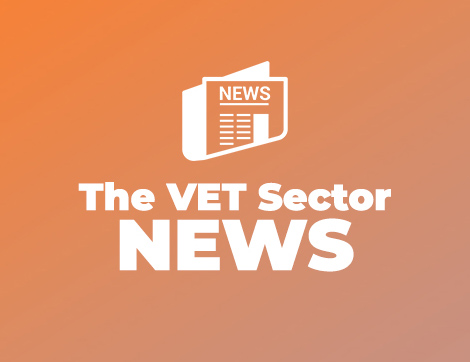
21 September, 2021
Aged care facing impending shortage of 110,000 workers, report finds
Urgent action is needed to address a looming shortage of at least 110,000 aged care workers over the coming decade, including boosting pay and conditions and creating a new dedicated migration path to boost the labour force. The stark warning is contained in a new report to be released by the Committee for Economic Development […]
3 years ago

21 September, 2021
Australian border closures blamed for $2.7bn ELICOS related loss
Border closures related to the pandemic in Australia will see the country’s economy AU$2.7 billion worse off due to losses in income that would usually be generated by the ELICOS sector, according to a new analysis. English Australia’s Economic Impact research – prepared by Bonard – found that border closures resulted in a $1.2bn loss […]
3 years ago

21 September, 2021
Extra $3.2m to boost support for vocational education and training
A new funding model, backed by a $3.2 million investment, will help government schools to support their students into industry-endorsed Vocational Education and Training (VET). Under the new arrangement, government schools will receive top-up funding of $300 for each student, or $600 for each eligible student with a School Card, enrolled in a VET qualification […]
3 years ago

21 September, 2021
Australia’s manufacturing sector to be revived as a result of COVID-19
IBSA Group, a workforce skills program developer, in support of National Skills Week next week, reports that Australia’s manufacturing sector will be reignited as a result of COVID-19. More job opportunities and skills-based apprenticeships are likely to be created, due to more companies manufacturing in Australia rather than abroad, IBSA Group CEO Sharon Robertson said. […]
3 years ago

21 September, 2021
U.S. Invests $220M in Artificial Intelligence Research Institutes
The U.S. Department of Agriculture’s National Institute of Food and Agriculture (USDA-NIFA) and the U.S. National Science Foundation (NSF) announced a $220 million investment in 11 new NSF-led Artificial Intelligence (AI) Research Institutes. USDA-NIFA and other agencies and organisations have partnered with NSF to pursue transformational advances in a range of economic sectors and science […]
3 years ago

21 September, 2021
China Revises Law to Advance Innovation in Science, Technology
Chinese national lawmakers began deliberating a draft revision to the law on scientific and technological progress, as the country seeks to advance the quality and efficiency of its innovation in science and technology. The draft was presented to the ongoing session of the Standing Committee of the National People’s Congress for its first reading. The […]
3 years ago

21 September, 2021
Afghan women at university will study separately from men, the Taliban say
The new Taliban government says Afghanistan’s education system had changed since their last time in power. But women will only be allowed to study in gender-segregated classes and Islamic dress enforced. Afghan women will be allowed to attend university as long as they study separately from men, the Taliban’s new higher education minister said on […]
3 years ago

21 September, 2021
Canada: students worry about unaffordable course withdrawal
International students enrolled at Canadian institutions have said they are unable to withdraw from their courses and get refunds due to college policies and visa processing delays. As part of applications for study visas, students using the fast-track study permit Student Direct Stream were required to pay for a full year of study up front, […]
3 years ago

21 September, 2021
Internationals contribute £28.8bn to UK economy yearly
International students in the UK contribute £28.8 billion to the country’s coffers annually – an equivalent of every citizen being on average of £390 better off – new analysis has revealed. The costs and benefits of international higher education students to the UK economy report found that international students add a net economic benefit of […]
3 years ago

21 September, 2021
‘It’s so hard’: how the pandemic upended young people’s career paths
Remote learning and its detrimental effect on their study have forced many teenagers to rethink tertiary education. Morgan Vella and his friends used to hold high ambitions for what life would look like after graduating high school: leaving their regional Victorian town for university in the city, enjoying a world of busy dormitories, student bars […]
3 years ago

21 September, 2021
India urges Australia to address students’ difficulties due to travel restrictions
India on Saturday urged Australia to sympathetically address as soon as possible the difficulties being faced by Indian students due to the travel restrictions put in place by that country in view of the COVID-19 pandemic. The issue was taken up during deliberations when External Affairs Minister S Jaishankar and Defence Minister Rajnath Singh held […]
3 years ago

21 September, 2021
India, Australia concur that ‘Afghanistan must not become terror hub’
India and Australia on Saturday, September 11, 2021, and expressed concern over the situation in Afghanistan and hoped that its territory would not be used for terrorists’ activities and doesn’t become a safe haven for terrorists. Speaking to the media after the first 2+2 dialogue between India’s external affairs minister S Jaishankar and defence minister […]
3 years ago

21 September, 2021
Student wellbeing and online learning: Tips for students
Due to the current outbreak of the COVID-19 strain of the coronavirus many higher education providers have switched to online delivery of all or many of their courses. Some providers have a lot of experience in online teaching while others are new to the experience. The same is true for the students in higher education. […]
3 years ago

21 September, 2021
Providers: Check your delivery locations in asqanet are up-to-date
Maintaining accurate and up-to-date provider information is a requirement for training providers. Accurate delivery location data is important to provide students with surety and understanding about how and where your courses can take place. The information you provide in asqanet will be reflected on training.gov.au. If you haven’t already done so this year, please check […]
3 years ago

21 September, 2021
Australia installs first space laser optical ground station in southern hemisphere
Recently, my colleagues and I swung a half-tonne telescope onto the roof of the physics building at the University of Western Australia. For a tense moment, my career hung from a crane hook. The telescope is the first of its kind in the southern hemisphere and represents a new generation of space communications using lasers. […]
3 years ago

21 September, 2021
Breaking the bamboo ceiling: Young Asian Australian women share their tips for success
While Asian Australians continue to be underrepresented in leadership positions, some young women have managed to break through the “bamboo ceiling”. The ABC spoke to four finalists in the 2021 40 Under 40 Most Influential Asian-Australians Awards — a nanotechnology engineer, a ballet dancer, a human rights lawyer and a telco executive — about the […]
3 years ago

21 September, 2021
The impact of COVID-19 on higher education and Vocational Education and Training
For more information, please visit: Higher Education: It is an unfortunate sign of the times that this summit is being held virtually, like so many other things at the moment. Large parts of the country are in lockdown, internal borders are closed, and families can’t travel to see loved ones. For our universities, I know […]
3 years ago

21 September, 2021
Viral email regarding ASQA’s current and past audit activities
If you follow Education Issues Australia on Twitter, or have LinkedIn, or Facebook accounts, you may have noticed a report developed by the @edissuesaus. The research identifies some serious and systemic problems with the current regulatory body. More information can be found by visiting this link. A copy of this has also been presented to […]
3 years ago

4 October, 2021
New South Wales pilot plan ‘would expand and evolve’: minister
International students form long lines outside Melbourne foodbank A food charity in Melbourne is helping international students hit hard by lockdowns, providing supplies for almost 2 thousand students a week. For more information, please visit here. NSW releases ‘return to VET’ guidelines, visit here.
3 years ago

4 October, 2021
WA invests $31.7 million in in-house career counsellors
The Western Australian government has announced it will be deploying ‘career practitioners’ across 70 high schools in the state next year to help students explore work and study options after graduating. Education and training minister Sue Ellery announced the multi-million dollar initiative on Wednesday, saying that it would help set students up for successful futures. […]
3 years ago

4 October, 2021
Education & Training Market is Booming Worldwide
The latest published market study on Global Education & Training Market provides an overview of the current market dynamics in the Education & Training space, as well as what our survey respondents—all outsourcing decision-makers—predict the market will look like in 2027. The study breaks the market by revenue and volume (wherever applicable) and price history […]
3 years ago

4 October, 2021
$1m donation expands Australia’s only nuclear engineering program
The nuclear engineering program prepares students for careers in high-tech industries including nuclear science, nuclear medicine, mining and resources, energy, manufacturing, aerospace, space exploration and defence. The funding aims to support scholarships for approximately 20 domestic students to obtain a master’s degree in Nuclear Engineering from UNSW’s School of Mechanical and Manufacturing Engineering, along with […]
3 years ago

4 October, 2021
ASQA approves extended transition period for a number of courses
ASQA has approved an extended transition period to a number of courses, including 52707WA Graduate Diploma of Dermal Therapies, 52709WA Graduate Diploma of Cosmetic. CPC30318 Certificate III in Concreting, HLT21015 Certificate II in Medical Service First Response, HLT31015 Certificate III in Ambulance Communication (Call Taking), HLT31115 Certificate III in Non-Emergency Patient Transport, HLT41015 Certificate IV […]
3 years ago

4 October, 2021
New Standards for Course Accreditation for Western Australia RTOs
Course accreditation is the formal recognition of a course by an accrediting body. In Western Australia, the course accrediting body is the Training Accreditation Council (TAC or the Council). Accredited courses fill a gap in skill requirements that are not covered by national industry training package qualifications. They must be developed in accordance with the […]
3 years ago

4 October, 2021
Benefits of virtual exchange programmes for international students
Moving halfway across the world isn’t the only way to reap the benefits of exchange programmes. Virtual exchange programmes — where participants connect with peers and institutions from anywhere in the world — achieve the same perks, like meeting new people, breaking down tired cultural stereotypes and bringing classroom learning to life. For more information, […]
3 years ago

4 October, 2021
Offshore learning hubs keep overseas students engaged
Universities in Australia and New Zealand, where borders have remained closed to international students for over 18 months, have found innovative ways to keep online learners engaged by setting up special learning centres in China. And student ‘hubs’ elsewhere in Asia are supporting students enrolled in different universities overseas, and who would otherwise be isolated […]
3 years ago

4 October, 2021
MIT tops QS employability ranking 2022
Global higher education analyst Quacquarelli Symonds has named the Massachusetts Institute of Technology in the US as the leader of its graduate employability ranking for a second year in a row. The QS Graduate Employability Rankings 2022 take a closer look into how well universities are preparing students for the world beyond higher education, using […]
3 years ago

4 October, 2021
Is blended delivery the future of Australian VET education?
A research by Sheila Hume and Tabatha Griffin, NCVER demonstrate that there was a strong response from the VET sector to COVID-19 restrictions, with the number of subjects delivered online increasing by about 24% between 2019 and 2020. The research reported that the shift to online training delivery was more pronounced for government-funded subject enrolments […]
3 years ago

4 October, 2021
Now and into the future
Approximately 12 months after the commencement of COVID-19 restrictions in Australia, only about one quarter (25.1%) of the surveyed RTOs who had transferred some face-to-face training online had reverted fully to their pre-COVID-19 approach to training. The survey findings demonstrate a strong pattern of RTOs continuing to offer online training in areas where it was […]
3 years ago

4 October, 2021
Who pays and the relationship to online delivery?
The overall increase of online training has coincided with a substantial rise in the number of governments funded online-only subject enrolments, with these enrolments increasing by almost 362 600 in 2020 (an increase of 40.4%; table 3).
3 years ago

4 October, 2021
Overview of training provider response.
COVID-19 has had an undeniable impact on the VET sector, with the significant and rapid transition to online learning early in the pandemic establishing the groundwork for and influencing the likelihood of RTOs using more blended learning in the future, as outlined in the below figure.
3 years ago

4 October, 2021
Delivery of training before and during COVID-19
Although there was a substantial transition (75.2%) to partial or full online delivery in response to COVID-19 (see the below table), more than half (52.5%) of the RTOs who did not (or could not) move any face-to-face training or assessment online had to suspend either full programs or certain subjects/units. This issue raises the question […]
3 years ago

4 October, 2021
Influence of COVID-19 on future plans
Training providers indicated a strong interest in incorporating more online training in the future, with 61.8% of those who moved some training online in response to the pandemic confirming that they were likely to use more blended learning in the future. In addition, other plans to expand online learning in the future included: likely to […]
3 years ago

4 October, 2021
The VET Sector News- October 2021
Australia’s five most powerful education leaders in 2021 AFR Magazine’s annual Power issue, out on Friday, October 1, includes lists of the key players across six industry sectors. Here the people topping teaching in a profound year for the sector. For more information, please visit here. New South Wales pilot plan ‘would expand and evolve’: […]
3 years ago

14 October, 2021
The VET Sector News II- October 2021
IDP Live transforms international landscape for next generation of students IDP has recently launched its new student-centred app, IDP Live. IDP Live brings together a suite of tools, including a ground-breaking new service that fast-tracks students through to receiving an offer, prior to submitting their application – ensuring that students can find the right courses […]
3 years ago

1 November, 2021
The VET Sector News- November 2021
Apprenticeships in butchery, childcare and hairdressing decline across the ACT Canberrans have been warned local butchers are a “dying trade” after data showed a steep drop in apprenticeships. Figures collated by the National Centre for Vocational Education Research showed a decline in trainee butchers, hairdressers and childcare workers in the ACT since 2013. It was […]
3 years ago

24 March, 2022
ASQA announced as national training package assurance body
The Australian Government today announced the Australian Skills Quality Authority (ASQA) as the independent body to be responsible for training package assurance from 1 January 2023. This independent assurance function, which forms part of a broader suite of Australian Government reforms to the vocational education and training (VET) system, will see ASQA assessing training packages […]
3 years ago

24 March, 2022
Part-time work focus for international students a ‘time bomb’
The Australian government’s approach to boosting international education by uncapping part-time work rights is not a “gesture of support” for students but about providing “a supplementary workforce for corporate Australia”, a conference has heard. Phil Honeywood, head of the International Education Association of Australia (IEAA), told a Universities UK forum that the result could also […]
3 years ago

24 March, 2022
Domestic violence prevention program receives high praise from ACER
An ACER evaluation has found Griffith University’s MATE Bystander Program to be highly effective at equipping people with the tools and understanding to step in and address problematic behaviour, prevent violence against women, racism and discrimination, and promote equality. Domestic and gender-based violence is a huge concern in Australia, affecting up to one in four […]
3 years ago

24 March, 2022
Does competency have to be the only way VET is delivered? – comment by CEO Jenny Dodd
In a competency system the standards that industry requires to be demonstrated are set out. That is, the outcomes are defined but not the process to get there. However, in a curriculum-based environment the learning outcomes are defined. That is, the process through which the learner undergoes capability development to achieve the outcomes is defined. […]
3 years ago

24 March, 2022
ASIC’s ambitious goal to give advice to Australia’s youth
With the under 21 demographic priced out of financial advice, ASIC has released a new website to help boost financial literacy in the next generation of adults. The corporate regulator’s new Get Moneysmart website covers making decisions with money, managing debt and planning for the future (moving out of home, car loans, weddings and even […]
3 years ago

24 March, 2022
Australian universities: How much does it cost to send your child there? (2022)
There is no nice way to say this: Be prepared to bleed your soul dry paying for an Australian university education. International students are a huge revenue source for Australian universities, and they’ve been taking full advantage of it by hiking up their fees outrageously over the years. Let’s take a look at the annual […]
3 years ago

24 March, 2022
Foreign students back to pre-pandemic numbers
International student numbers at universities and vocational education have bounced back to above pre-pandemic levels, with the number of students commencing studies higher than in 2019. However, that is at odds with the English-language and school sectors, which have both been decimated and show no signs that students are responding in any significant numbers to […]
3 years ago

24 March, 2022
Five Trends The EdTech Industry Should Pay Attention To In 2022
Education technology is an industry that is expected to surpass $377 billion by 2028. From my perspective, the reason for this expected growth is the emergence of new technologies and the changing needs of students. As social media and the internet continue to become a greater part of our lives, they’re also going to become […]
3 years ago

24 March, 2022
Clinical trial finds a new therapy to lower cholesterol and stabilise plaques associated with heart attack
A novel new therapy has been found to reduce harmful plaque in arteries and change its composition so it is less likely to rupture and cause a heart attack, following a clinical trial led by the Victorian Heart Institute (VHI) at Monash University. Read the media release here. For more information, please visit here.
3 years ago

24 March, 2022
UK, Australia may score over Canada for Indian students, shows data
If 2021 saw Canada post a manifold growth in intake of international students, especially from India, the upcoming Fall 2022 season may find the scales tipped in favour of the UK and Australia, along with the US, as top destinations. The Immigration, Refugees and Citizenship Canada (IRCC) figures recorded a jump of over 300 per […]
3 years ago

24 March, 2022
VET Sector News- March 2022
ASQA announced as national training package assurance body The Australian Government today announced the Australian Skills Quality Authority (ASQA) as the independent body to be responsible for training package assurance from 1 January 2023. This independent assurance function, which forms part of a broader suite of Australian Government reforms to the vocational education and training […]
3 years ago

25 April, 2022
Experts to support ASQA regulatory efforts, strategic vision
The government has established a new national advisory council to support the best practice regulation of Australia’s vocational education and training (VET) sector. Peter Costantini will chair the new council, comprised of members professor Valerie Braithwaite, Renee Hindmarsh, Dr Grant Klinkum, Adrienne Nieuwenhuis, Neil Quarmby, and Dr Don Zoellner. The expert Vocational Education and Training […]
3 years ago

25 April, 2022
Australia extends support for Vietnam’s vocational education, training
The Australian Embassy in Vietnam and Vietnam’s Ministry of Labour, Invalids and Social Affairs (MOLISA) on April 14 launched Australia’s next phase of support for Vietnam’s vocational education and training (VET). Over the past four years, Aus4Skills strengthened the engagement of Vietnam’s logistics industry in VET to help ensure that students graduate with the skills […]
3 years ago

25 April, 2022
How Australia can turn the digital skills deficit into an opportunity
Economics consulting firm AlphaBeta has estimated that 3.7 million Australian employees will need training in digital skills in the next year in order to cope with the changes in their jobs due to the pandemic. That’s a daunting figure, 29% of the workforce, especially as we face an acute shortage of people with the skills […]
3 years ago

25 April, 2022
Building a safer and more sustainable future with apprenticeships and technical education
A major report into how world class skills training will support the construction industry to boost safety, sustainability, and the mental health of its workforce has been unveiled today. The findings of the Construction Route Review have been published by the Institute for Apprenticeships and Technical Education (IfATE). A major report into how world class […]
3 years ago

25 April, 2022
Technical and Vocational Education Market To Eyewitness Huge Growth: 2022, Regional Development Status, New Platforms and Advance Technologies by 2028
The research reports on the “Technical and Vocational Education Market” report give a detailed overview of the factors affecting the global scope of business. Information in the global Technical and Vocational Education market report provides forecast data for future market growth in global demand and supply. The report initially provides a basic overview of the […]
3 years ago

25 April, 2022
Worldskills support youth to thrive
A comprehensive study commissioned by Worldskills Australia explores the views and attitudes of over 400 young apprentices, trainees, VET students and their mentors. The survey is to better understand what motivates them and discover how Worldskills can further encourage young people to consider pursuing a vocational skill. Amid significant and well-publicised labour shortages, a precarious […]
3 years ago

25 April, 2022
The government has unveiled a plan to invest $900 million on Australia’s research infrastructure
The Australian Government has announced the introduction of the 2021 National Research Infrastructure (NRI) Roadmap, which will invest $900 million over five years in tools, technology, and skills to bolster Australia’s worldwide competitiveness in research. Acting Education and Youth Minister Stuart Robert stated that ensuring funding certainty for research and innovation would strengthen Australia’s comparative […]
3 years ago

25 April, 2022
Australian Skills Classification 2.0 released
The Australian Skills Classification helps define the skills that underpin jobs in Australia. As employers, workers, education providers and policy makers recognise that skills are the real currency of the labour market, the Australian Skills Classification can play a pivotal part in enabling new skills-based approaches to workforce and talent strategies, learning and development, and […]
3 years ago

25 April, 2022
Advisory Group for VET Reforms
The Commonwealth, with all State and Territory Governments, are together progressing a program of significant structural reform of the VET system to improve efficiency, transparency and confidence in the sector and ensure Australians have access to high quality and relevant training. The Advisory Group for VET Reforms has been established in the context of the […]
3 years ago

25 April, 2022
National Workforce Strategy
The National Workforce Strategy provides a framework for Government to work with to ensure sector-specific workforce plans are data-driven, enable and equip Australians to take up available work, remove barriers to participation, activate industry to drive change, and use migration to complement the domestic workforce. For more information, please visit National Workforce Strategy – Department […]
3 years ago

25 April, 2022
New guide will help course owners apply for course accreditation
ASQA has published a new guide to help course owners understand what they need to do when applying for course accreditation. The new guide will help course owners: interpret and apply the Standards for VET Accredited Courses 2021 and the Australian Qualifications Framework in the course documentation better understand the requirements for accreditation by providing […]
3 years ago

25 April, 2022
How COVID-19 caused a global learning crisis
In McKinsey and Company’s latest report on unfinished learning, we examine the impact of the COVID-19 pandemic on student learning and well-being, and identify potential considerations for school systems as they support students in recovery and beyond. For more information, please visit How COVID-19 caused a global learning crisis | McKinsey
3 years ago

25 April, 2022
National Microcredentials Framework
DESE has undertaken extensive consultation with the wider tertiary sector to develop the National Microcredentials Framework. The framework’s goal is to provide greater clarity and understanding within the tertiary education sector and amongst learners as to the value and recognition of microcredentials. The framework should also encourage transparency, consistency and objectivity in the sector around […]
3 years ago

25 April, 2022
How colleges and universities are reimagining remote learning
Just two years ago, universities around the world closed their campuses at the pandemic’s onset, and embarked on a never-before-tried experiment: delivering education 100 percent remotely. The results have been mixed, especially in low- and middle-income countries, but universities everywhere agree that online classes are a permanent feature. The question is how to do it […]
3 years ago

25 April, 2022
VET Sector News- April 2022
Experts to support ASQA regulatory efforts, strategic vision The government has established a new national advisory council to support the best practice regulation of Australia’s vocational education and training (VET) sector. Peter Costantini will chair the new council, comprised of members professor Valerie Braithwaite, Renee Hindmarsh, Dr Grant Klinkum, Adrienne Nieuwenhuis, Neil Quarmby, and Dr […]
3 years ago

22 May, 2022
London universities plan “leading” international strategy
“Where London leads; I have no doubt the rest of the country will follow,” was the message from Chris Skidmore, former minister of state for universities, speaking to representatives from 25 of London’s higher education institutions at a roundtable event in Westminster this week. The event, organised by London Higher and Oxford International Education Group, […]
3 years ago

22 May, 2022
NZ brings forward reopening to students, changes post-study work rights
Prime Minister Jacinda Ardern confirmed that from July 31st all visitors will be able to enter the country, and that international students will be able to apply for visas. She said the reopening was part of a package of measures to support economic recovery and to fill labour shortages in the country. Working holiday visas […]
3 years ago

22 May, 2022
Vocational education: Change negative mindset
There is a narrative that has been around for a while tagging technical/vocational education as a last resort after one fails to advance in formal education. The other was that it’s the cheaper option if one failed to raise the tuition for instance to finish high school or to join university or if one had […]
3 years ago

22 May, 2022
What are the challenges facing Australia’s medical workforce crisis?
The health and welfare workforces deliver various services through Australia’s private and public organisations. However, there is an imbalance in the system as the extent of services delivered is way lesser than what is actually needed, primarily due to workforce crisis. The accurate picture of the healthcare workforce crisis in Australia was revealed during the […]
3 years ago

22 May, 2022
Students “in limbo” during two-year wait for Australia visas
These students say they are “in limbo” as Australia’s Department of Home Affairs, which oversees immigration, refuses to provide a clear timeline of when students can expect to hear the outcome of their applications. Alokita, an Indian student, received an offer to study aerospace engineering at UNSW Canberra in September 2020 and was due to […]
3 years ago

22 May, 2022
Training the key to skills shortage
THE automotive industry is facing the most serious skills shortage in its history, ravaged by diminished apprentice intake, COVID and business contraction. In its manifesto that highlighted the needs of industry from a new federal government, the Victorian Automotive Chamber of Commerce (VACC) said there was a skilled labour deficit of 31,143 positions across the […]
3 years ago

22 May, 2022
How Chinese young people embrace vocational education
China has attached great importance to the development of vocational education in recent years. Find out how Chinese young people embrace skills training at vocational schools. For more information, please click here.
3 years ago

22 May, 2022
Major milestone for fee-free training in NSW
NSW is enjoying a fee-free training boom with more than 200,000 enrolments recorded under JobTrainer, a program helping people get skilled for in-demand jobs. Premier Dominic Perrottet said the NSW Government’s strong economic management means we can deliver programs such as JobTrainer to equip people with the skills they need to get their first job, […]
3 years ago

22 May, 2022
International students are still being routinely exploited
Over the decade leading up to COVID, the exploitation of international students became systemic across the Australian economy. Multiple reports bemoaned the rampant wage theft from international students, especially from migrant employers of the same nationality. For example, the 2016 Senate Committee report, A National Disgrace: The Exploitation of Temporary Work Visa Holders, noted that […]
3 years ago

22 May, 2022
Without foreign students and workers, retail sector calls for pensioners to fill staffing gaps
The Australian Retailers Association (ARA) has called on new government policy to unlock pensioner participation in a sector that is facing its tightest labour market in half a century, exacerbated by a lower inflow of international students and working holiday makers. The peak retail body is supporting calls to allow employment income to be exempt […]
3 years ago

22 May, 2022
Industry welcomes Labor’s commitment to hospitality skills training
Australia’s Labor Party has announced a $48 million tourism and travel package which includes a $10 million injection in training and skills development for the hospitality and accommodation sectors. Industry groups the Accommodation Association, Australian Hotels Association and Tourism Accommodation Australia, who have long called for additional funding for training, have welcomed the commitment. “As […]
3 years ago

22 May, 2022
Why Universities Should Prioritize Student Success in IT Decision-Making
Students make up the backbone of every higher education institution. These inquisitive minds are the reason colleges and universities exist in the first place, so it stands to reason that the institution’s decisions should be made with the goal of supporting learners and their diverse needs. This philosophy should extend to the IT department. Every […]
3 years ago

22 May, 2022
Skilling the Australian workforce for the digital economy
This study explored the current digital skills demand and supply situation in Australia’s workforce. The research investigated the skills impact of digitalisation on two industry sectors—transport and logistics, and public safety and correctional services—as well as the wider workforce. The research culminated in a proposed Australian workplace digital skills framework to help identify digital skills […]
3 years ago

22 May, 2022
Incorporating digital skills into VET delivery: good practice guide
Given its ties to industry, vocational education and training (VET) has a crucial role in ensuring the workforce possesses the skills for responding to Industry 4.0, with advanced technologies now entering workplaces and transforming how businesses operate. This good practice guide is intended to provide advice on incorporating digital skills into VET delivery for VET […]
3 years ago

22 May, 2022
Teaching digital skills: implications for VET educators – good practice guide
The rise of Industry 4.0 and the digital economy has highlighted the need for the general workforce to hold digital skills. But what are the implications for vocational education and training (VET) educators in ensuring the workforce is appropriately skilled? This guide highlights the implications for VET educators of the increasing need to include digital […]
3 years ago

22 May, 2022
The value of volunteering: volunteering in education and productivity at work
The Education and Employers charity has been supporting people from the world of work to volunteer in schools and colleges since 2009, publishing peer-reviewed research on the benefits for young people’s confidence, career aspirations, attainment and employment outcomes. This latest research reveals the ‘mirror benefits’ for volunteers, drawing on a survey of 1,026 volunteers, detailed […]
3 years ago

22 May, 2022
TAFE eyes new debt collector to chase students
TAFE SA is searching for a new debt collection agency to recover more than $200,000 a month in unpaid fees by tracking down students, visiting their homes and making “phone demands” to pay up. TAFE SA has released a tender calling for expressions of interest for the provision of “Debt Recovery Services” from an “external […]
3 years ago

22 May, 2022
Griffith TAFE is encouraging those seeking new jobs to get in touch about upcoming courses
Griffith TAFE is encouraging those looking for new opportunities to come in and have a chat about possible futures and enrolment for semester two, just in time for National Careers Week. National Careers Week this year comes on May 16, just after a new report revealed 24 per cent of workers are actively pursuing new […]
3 years ago

22 May, 2022
The VET Sector News- May 2022
Griffith TAFE is encouraging those seeking new jobs to get in touch about upcoming courses Griffith TAFE is encouraging those looking for new opportunities to come in and have a chat about possible futures and enrolment for semester two, just in time for National Careers Week. National Careers Week this year comes on May 16, […]
3 years ago

12 June, 2022
World University Rankings 2022
The Times Higher Education World University Rankings 2022 include more than 1,600 universities across 99 countries and territories, making them the largest and most diverse university rankings to date. The table is based on 13 carefully calibrated performance indicators that measure an institution’s performance across four areas: teaching, research, knowledge transfer and international outlook. For […]
2 years ago

12 June, 2022
What new gov’t in Australia means for int’l education
Industry leaders and experts are looking forward to working with the new government in Australia to usher in a recovery for the international education sectors in the country. Last week, Universities Australia, Independent Tertiary Education Council Australia and Independent Higher Education Australia welcomed Jason Clare on his appointment as minister for education. Along with addressing […]
2 years ago

12 June, 2022
Young workers wired in to become most in-demand tradies in Australia
Electricians are among the most in-demand tradespeople in Australia, according to the National Electrical Contractors Association (NECA). And employers find it difficult to attract suitably qualified and experienced tradespeople. With growth projected in the construction and infrastructure sectors and a strong uptake in renewable energy, the skills shortages only look likely to worsen. For more […]
2 years ago

12 June, 2022
UK losing ground on international PhD student recruitment
The UK is losing ground to Germany, Canada and Australia in attracting international doctoral students despite its success in recruiting Chinese postgraduates, a new study says. While the UK remains the biggest destination for PhD students outside the US, the overall number of international doctoral candidates has fallen by 5 per cent, or about 2,400 […]
2 years ago

12 June, 2022
Australian PM under pressure to increase migrant intake to address dire worker shortage
New Australian Prime Minister Anthony Albanese is under pressure to lift the nation’s migration intake cap due to a dire shortage of workers that is forcing some businesses to restrict hours and services. Before the pandemic, Australia easily filled its annual quota, which has been set at about 160,000 permanent migrants a year since 2017. […]
2 years ago

12 June, 2022
Australian visa backlog keeping engineers out of country amid skills shortage
The engineering job vacancy rate has increased 97% in 12 months, something the main industry body, Engineers Australia, fears could have a “catastrophic” impact, including by delaying major infrastructure projects relied upon for the nation’s economic recovery. The wait times for the 476 visa – designed for recent engineering graduates who want to live, work […]
2 years ago

12 June, 2022
Aus: $110m student housing opens in Adelaide
The building, which can accommodate 725 students, is one of Adelaide’s tallest at 118 metres and features study spaces, outdoor terraces, a gym, cinema, communal kitchens and lounges. Yugo, a global student housing operator that launched last year in a merger of three of GSA’s brands, is managing the accommodation. The company says it has […]
2 years ago

12 June, 2022
Swinburne climbs 25 places to Top 300 globally
Swinburne University of Technology has climbed 25 places to number 296 in the QS University World Rankings 2023, claiming a coveted Top 300 spot. The latest rankings success follows a period of significant growth and achievement for Swinburne, with the university rising more than 200 places in the QS rankings since 2015. The result confirms […]
2 years ago

12 June, 2022
Australia has second-worst skills crisis in developed world
Australia is experiencing the second most severe labour shortages in the developed world, according to the latest OECD economic outlook, reinforcing calls for immediate government action to fix the skills crisis. A record almost 3 per cent of all jobs were vacant in the March quarter, with 420,000 out of about 15 million positions waiting […]
2 years ago

12 June, 2022
Make research integrity training mandatory, say 73% of Australian researchers
The results of the first national survey to investigate research integrity in Australia, a collaboration between the Australian Academy of Science and publisher Springer Nature, indicate broad support for mandatory research integrity training. The survey found that whilst 68% of respondents stated that their institution offered research integrity related training and 50% stated it was […]
2 years ago

12 June, 2022
The VET Sector News- June 2022
World University Rankings 2022 The Times Higher Education World University Rankings 2022 include more than 1,600 universities across 99 countries and territories, making them the largest and most diverse university rankings to date. The table is based on 13 carefully calibrated performance indicators that measure an institution’s performance across four areas: teaching, research, knowledge transfer […]
2 years ago

27 June, 2022
World University Rankings 2022
World University Rankings 2022 The Times Higher Education World University Rankings 2022 include more than 1,600 universities across 99 countries and territories, making them the largest and most diverse university rankings to date. The table is based on 13 carefully calibrated performance indicators that measure an institution’s performance across four areas: teaching, research, knowledge transfer […]
2 years ago

27 June, 2022
What new gov’t in Australia means for int’l education
Industry leaders and experts are looking forward to working with the new government in Australia to usher in a recovery for the international education sectors in the country. Last week, Universities Australia, Independent Tertiary Education Council Australia and Independent Higher Education Australia welcomed Jason Clare on his appointment as minister for education. Along with addressing […]
2 years ago

27 June, 2022
The VET Sector News (June 2022)
World University Rankings 2022 The Times Higher Education World University Rankings 2022 include more than 1,600 universities across 99 countries and territories, making them the largest and most diverse university rankings to date. The table is based on 13 carefully calibrated performance indicators that measure an institution’s performance across four areas: teaching, research, knowledge transfer […]
2 years ago

17 July, 2022
Productivity, Migration and Skills
At a national level, the question is: what is the link between education and growth? That is a question the Productivity Commission is grappling with in the context of our 5-year Productivity Review. It’s not simple and to show why I want to start two claims: one bland and one more controversial. The bland one […]
2 years ago

17 July, 2022
Students shun unis in favour of trades, vocational courses
Australian students have turned away from university degrees in favour of trades and vocational courses, the latest census data has revealed. In 2021, 177,032 more students were completing vocational studies, which included courses offered by TAFE and private training providers, compared to 2016. In that same time period, there were just 24,824 more people studying […]
2 years ago

17 July, 2022
Skilled migration and visa backlog in focus at Anthony Albanese’s first National Cabinet meeting
The visa backlog must be addressed to allow migration to be harnessed to combat skill shortages plaguing the country, according to Prime Minister Anthony Albanese. Mr Albanese hosted his first National Cabinet meeting on Friday, where state and territory leaders directly raised the issue of fast-tracking targeted migration with him. The migration program is still […]
2 years ago

17 July, 2022
Reminder about superseded HLT First Aid units
An important reminder regarding first aid training: HLTAID001-HLTAID008 should no longer be delivered by any provider after July 1, 2022. For more information, please click here.
2 years ago

17 July, 2022
Leadership and personal finance are the focus of TROY’s two free online classes this summer
Whether you’re interested in building valuable leadership skills to propel your career or are interested in learning principles to protect and grow your wealth, Troy University is ready to help those who want to make a commitment to their future by offering two free courses this summer. TROY’s online courses have been ranked among the […]
2 years ago

17 July, 2022
The VET Sector News (July 2022)
Leadership and personal finance are the focus of TROY’s two free online classes this summer Whether you’re interested in building valuable leadership skills to propel your career or are interested in learning principles to protect and grow your wealth, Troy University is ready to help those who want to make a commitment to their future […]
2 years ago
Archives
- July 2022
- June 2022
- May 2022
- April 2022
- March 2022
- February 2022
- January 2022
- December 2021
- November 2021
- October 2021
- September 2021
- August 2021
- July 2021
- June 2021
- May 2021
- April 2021
- March 2021
- December 2020
- November 2020
- May 2020
- February 2020
- December 2019
- November 2019
- October 2019
- September 2019
- August 2019
- July 2019
- May 2019
- April 2019
- March 2019
- December 2018
- November 2018
- October 2018
- September 2018
- August 2018
- July 2018
- June 2018
- May 2018
- November 2016
- October 2016

Sukh Sandhu
Chief Executive Officer
Sukh has been working in the VET and Higher Education Industry for over 20 years. In this time, he has held several roles with RTO’s including CEO roles for International Colleges and National Compliance and Quality Assurance Manager roles for several RTO’s, TAFE’s and Universities. Sukh has also worked for ASQA as a Business Systems Project Official.
Sukh has had extensive project management experience in risk management, compliance, administration and as a training consultant. He has extensive knowledge in government compliance standards and has participated in nearly one hundred audits across Australia and provided consultancy advice regarding ASQA/VRQA, TEQSA, ACPET, DET-HESG, VQF/Higher Education, ELICOS, NEAS, ANMAC, AHPRA, CRICOS, ESOS and ISO.
Sukh is a member of several independent professional organisations and government bodies including, ACPET, VELG, ACS, AITD, MARA, MIA, ISANA, APEX, IEEE, The Internet Society (Global Member), AISIP, IAMOT, ACM, OISV, APACALL, IWA, Eta Kappa Nu, EDSIG and several others.
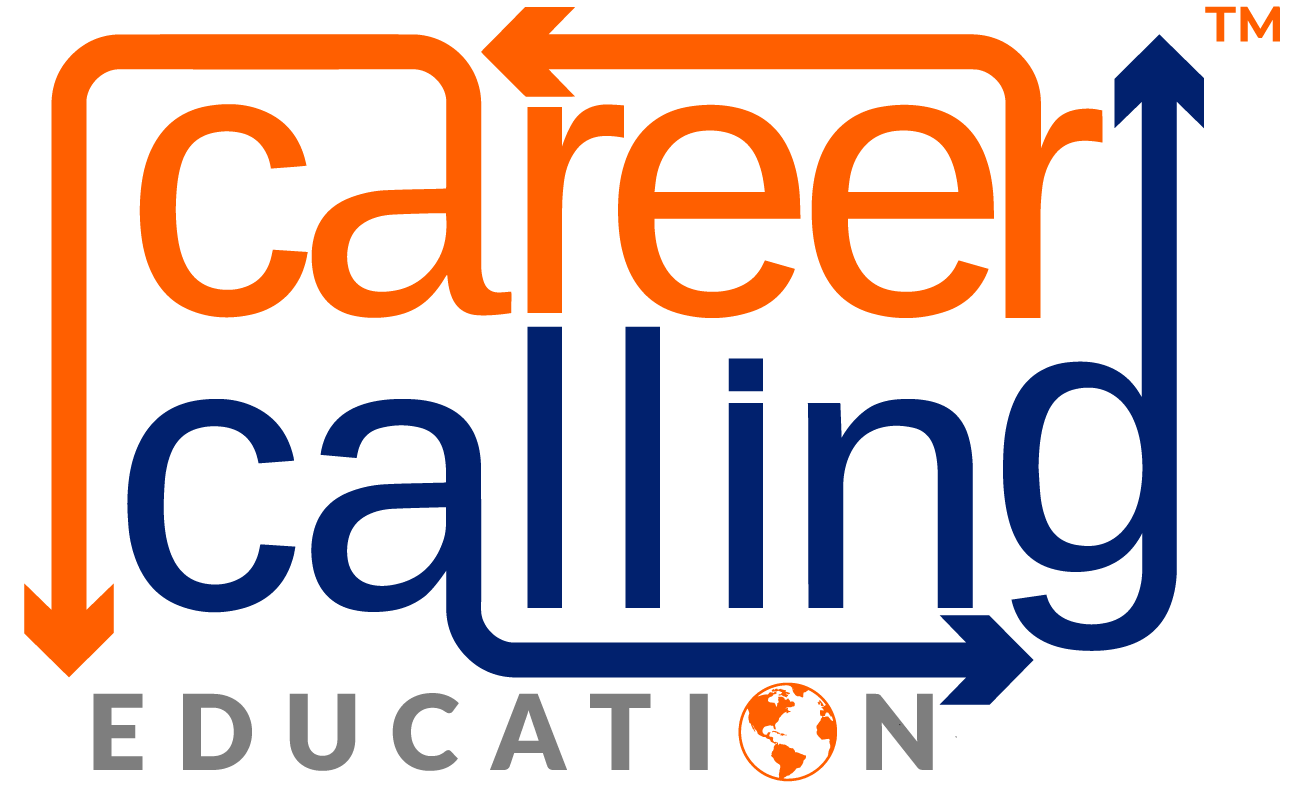
 Enrol Now
Enrol Now Info Pack
Info Pack
